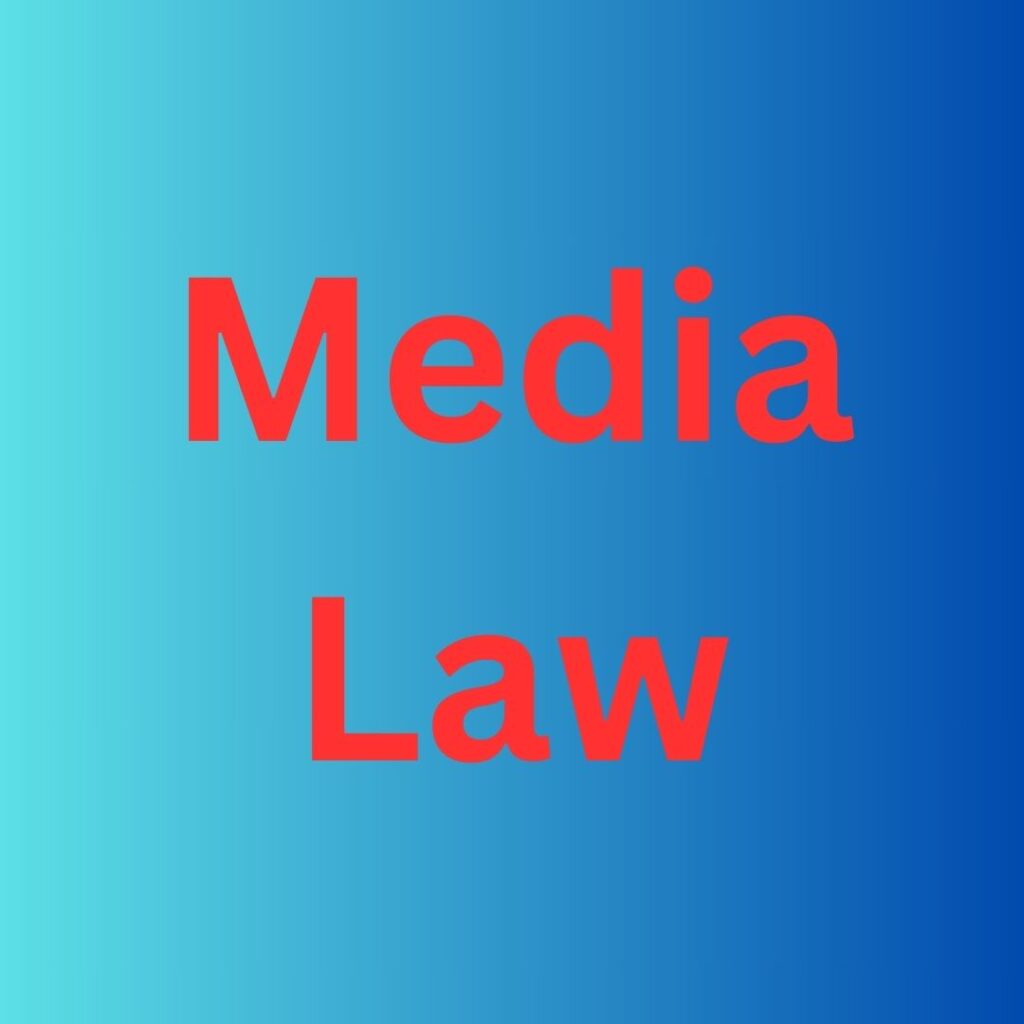
Media law, also known as entertainment law or communication law, is a broad legal field that encompasses the regulation and protection of various forms of media, including print, broadcast, digital, and online media. It involves the intersection of law, communication, and technology. Media law covers a wide range of issues, and its primary objectives include safeguarding freedom of expression, protecting intellectual property rights, and ensuring fair and ethical practices in the media industry.

Key areas within media law include:
- Freedom of Speech and Press: Media law often addresses constitutional rights related to freedom of speech and the press. It involves protecting journalists and media organizations from censorship and unwarranted government interference.
- Libel and Defamation: Media law deals with issues related to false statements that harm the reputation of individuals or organizations. Journalists must navigate the delicate balance between free speech and the responsibility to avoid spreading false information.
- Intellectual Property: This area includes copyright, trademark, and patent laws. Media law protects the rights of content creators and owners, ensuring they have the legal means to control the use and distribution of their work.

- Privacy: Media law addresses the privacy rights of individuals, especially when it comes to the gathering and dissemination of personal information by the media. Journalists must be aware of privacy laws and ethical considerations when reporting on private matters.
- Access to Information: Media law may involve issues related to freedom of information and the public’s right to access government records and information.
- Regulation of Broadcasting: For television and radio, media law includes regulations governing licensing, content standards, and ownership restrictions to ensure fair and diverse representation in the media landscape.
- Advertising Law: This aspect of media law deals with regulations surrounding advertising practices, including truth in advertising, deceptive advertising, and the protection of consumers from false or misleading information.

Cyberlaw: With the rise of the internet and digital media, media law has expanded to cover issues such as online defamation, digital copyright infringement, and privacy concerns related to online communication.
Given the evolving nature of media and technology, media law is continually adapting to new challenges and developments in the industry. Legal professionals specializing in media law play a crucial role in navigating these complexities and ensuring that media activities comply with legal standards and ethical principles.

















